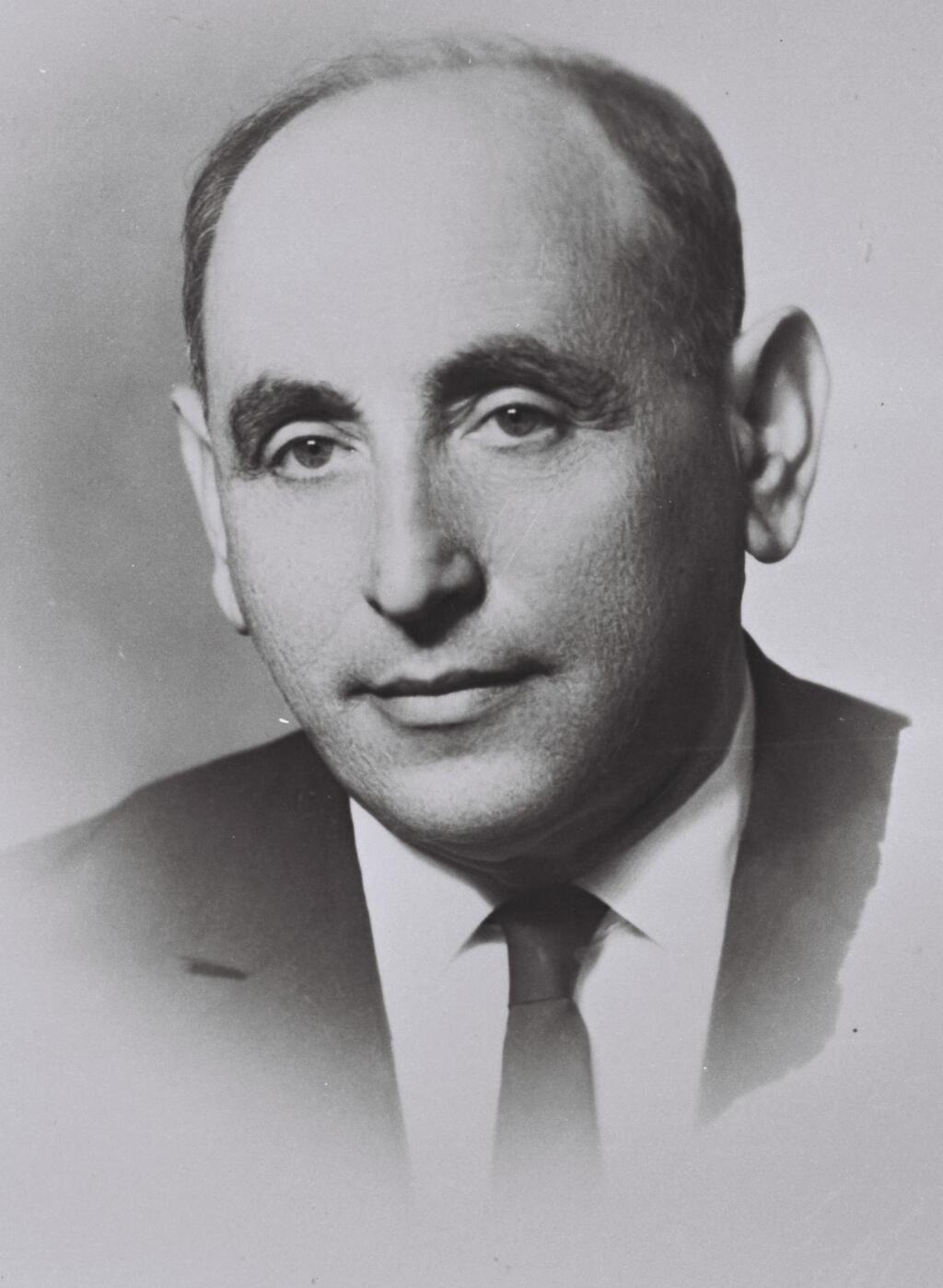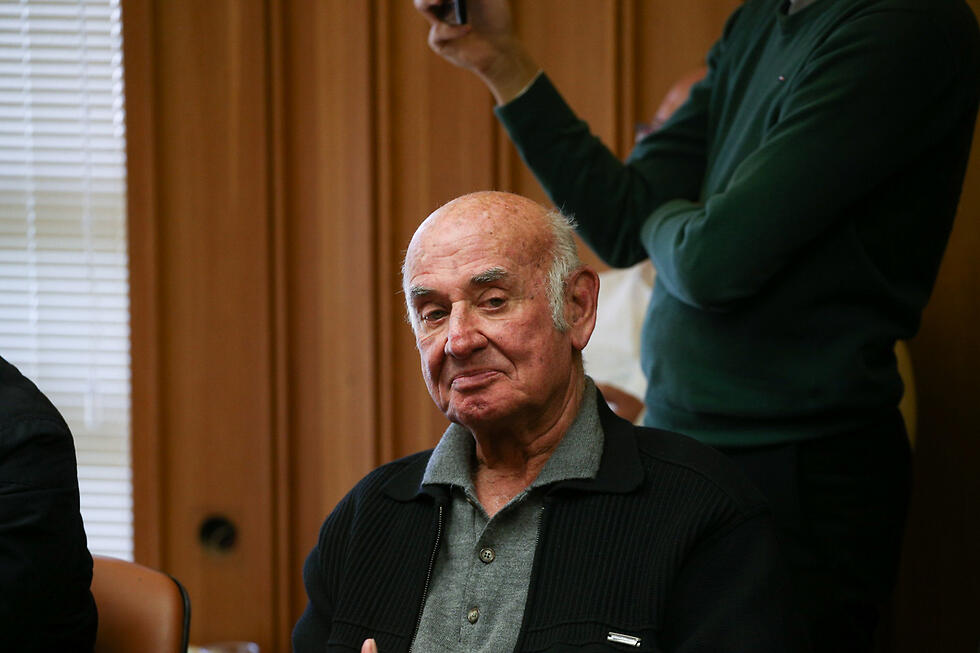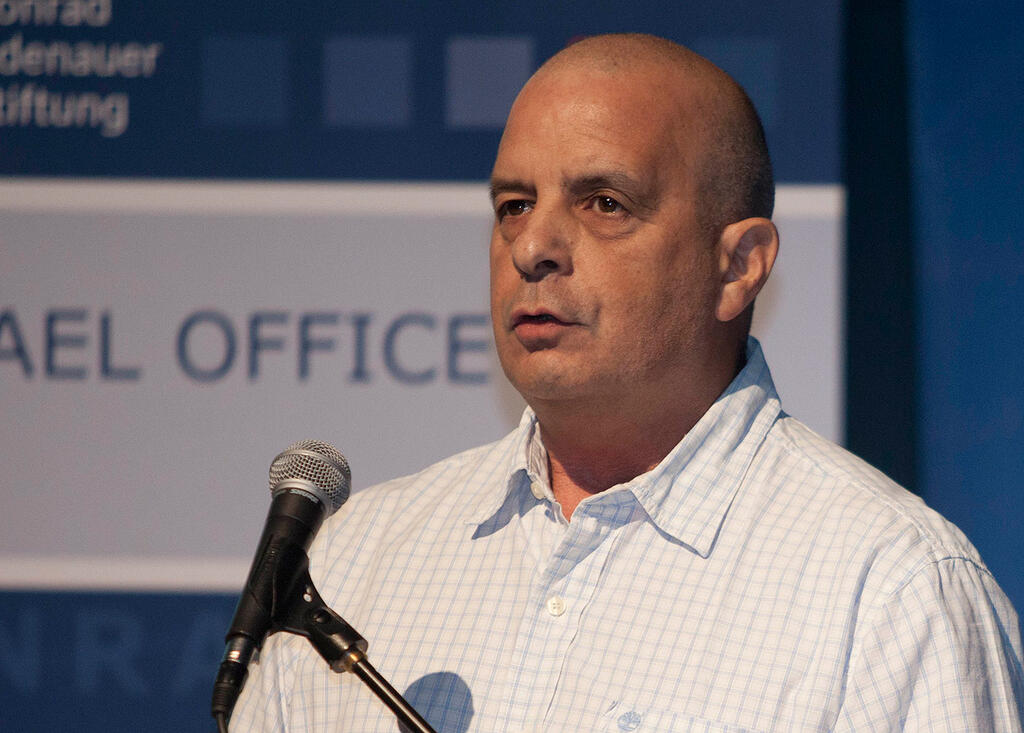Getting your Trinity Audio player ready...
Prime Minister Benjamin Netanyahu announced Monday that he had selected Eli Sharvit, a retired major general and former commander of the Israeli Navy, to be the next head of the Shin Bet, Israel’s internal security agency.
The nomination of Sharvit—who lacks experience in domestic intelligence work—drew immediate backlash from within the agency and from Netanyahu’s political allies. Within hours, reports emerged that Netanyahu was considering withdrawing the nomination due to pressure from members of his coalition.
5 View gallery


Commander of the Israeli Navy Vice Admiral Eli Sharvit, Nov. 27, 2019
(Photo: Sgt. Bar Schneider/IDF Spokesperson's Unit)
Sharvit’s political affiliations are not widely publicized. However, his involvement in 2023 protests suggests a commitment to judicial independence. Additionally, he has expressed environmental concerns, notably criticizing U.S. climate policies in a recent opinion piece.
Sharvit served in the Israeli Navy for 36 years and commanded the branch from 2016 to 2021. He helped shape Israel’s maritime defense strategy and oversaw operations targeting Iranian arms smuggling and threats from Hezbollah and Hamas.
Although widely respected in the military, he has no background in internal security or counterterrorism—traditionally considered prerequisites for leading the Shin Bet. Some critics, including senior figures inside the agency, have argued that the position should go to someone with long-standing operational experience within the organization.
The Shin Bet is Israel’s internal security service, officially known in English as the Israel Security Agency. The Hebrew name is Sherut Bitachon Klali (“General Security Service”), often abbreviated as Shabak or Shin Bet. The agency is responsible for counterterrorism, counterintelligence and protecting state secrets. Established in 1948, shortly after the founding of the state, it plays a central role in preserving internal security and thwarting terror plots, particularly from the Palestinian territories. It operates under the prime minister’s authority and reports to the Knesset’s Subcommittee for Intelligence and Secret Services.
Over the years, the Shin Bet has been directed by a series of high-ranking security professionals, many of whom went on to hold influential political or public positions.
The agency’s first director, Isser Harel, led from 1948 to 1952 and later headed the Mossad, Israel’s foreign intelligence agency. He is perhaps best known for overseeing the capture of Nazi war criminal Adolf Eichmann. After his tenure as director of the Mossad, Harel entered politics in 1969 by joining the National List, a party founded by David Ben-Gurion following his split from the Labor Alignment. Harel was elected to the Knesset and served as a member of the seventh Knesset until 1974, focusing on security issues during his term.
Harel's successor, Izi Dorot, served only briefly. From 1953 to 1963, Amos Manor served as director. A Holocaust survivor who immigrated from Transylvania, Manor focused on internal surveillance and counterintelligence, particularly against Soviet espionage.
Yossef Harmelin held the position twice, from 1964 to 1974 and again from 1986 to 1988. Between his terms, he served as Israel’s ambassador to Iran. Avraham Ahituv directed the agency from 1974 to 1981, known for advocating limited contacts with the Palestine Liberation Organization, a controversial stance at the time.
Avraham Shalom led from 1981 to 1986, resigning after the Bus 300 affair in which two captured Palestinian hijackers were killed after being taken into custody. Shalom was later pardoned by President Chaim Herzog. He was not affiliated with a political party.
Yaakov Peri, the first non-immigrant to hold the position of Shin Bet director, headed the agency from 1988 to 1994. After retiring, he entered politics with the centrist Yesh Atid party and served as minister of science, technology and space. His tenure at Shin Bet coincided with the First Intifada and saw a major ramp-up in intelligence-gathering operations.
Carmi Gillon, who served from 1995 to 1996, resigned following the assassination of Prime Minister Yitzhak Rabin. He later became an advocate for dialogue with Palestinians and took part in public diplomacy efforts. He was affiliated with the left-leaning Meretz party and served as Israel’s ambassador to Denmark.
Ami Ayalon, like Sharvit a former Navy commander, led the Shin Bet from 1996 to 2000. Ayalon later entered politics as part of the Labor party and became a vocal advocate for a two-state solution, co-founding the peace initiative The People’s Voice.
Avi Dichter, director from 2000 to 2005, was appointed during the Second Intifada and led the agency during one of its most active periods. After leaving Shin Bet, he joined the Kadima party and later became a Likud Knesset member, serving in several ministerial posts, including minister of internal security.
Yuval Diskin served from 2005 to 2011 and was noted for his hawkish positions on Hamas and Iran. Though not a politician, he became publicly critical of Prime Minister Netanyahu after his retirement, particularly regarding Iran policy and the Israeli-Palestinian conflict.
Yoram Cohen, who served from 2011 to 2016, was the agency’s first religiously observant director and, as a son of immigrants from Afghanistan, the first non-Ashkenazi to head the agency. Though not affiliated with any political party, his tenure focused on Jewish extremism as well as Palestinian terrorism.
Get the Ynetnews app on your smartphone: Google Play: https://bit.ly/4eJ37pE | Apple App Store: https://bit.ly/3ZL7iNv
Nadav Argaman, director from 2016 to 2021, invested heavily in cyber capabilities and intelligence technology. He generally kept a low public profile and did not enter politics after his term ended.
Ronen Bar, who led the agency from 2021 until early 2025, was dismissed by Netanyahu in a highly politicized move after internal disputes and criticism over the handling of intelligence ahead of the October 7 Hamas attacks. He was not publicly affiliated with any political party.
5 View gallery


Prime Minister Benjamin Netanyahu and outgoing Shin Bet chief Ronen Bar
(Photo: Yair Sagi, ABIR SULTAN/AFP, Shutterstock)
In addition to the controversy surrounding Sharvit’s nomination, Netanyahu’s attempt to dismiss Ronen Bar has encountered serious legal obstacles. Critics allege that Bar’s firing is politically motivated, linked to the Shin Bet’s investigation into allegations that Netanyahu’s aides received illicit payments from Qatar—an affair that has come to be known as “Qatargate.” Attorney General Gali Baharav-Miara has warned that firing Bar could be unlawful and may be tainted by conflicts of interest.
A petition to the High Court of Justice prompted an injunction temporarily blocking Bar’s removal, citing concerns about interference in an active corruption investigation involving the prime minister’s close associates. Former security officials and civil society groups have also raised alarms, arguing that the dismissal is part of a broader campaign to weaken Israel’s independent institutions.
The position of Shin Bet director carries enormous influence in Israel’s security establishment. The evolving political context, security threats and pressure from both domestic and international actors make the choice of leader deeply consequential. Whether Sharvit is confirmed or replaced, the appointment will reflect broader tensions in Israeli politics over the role of the security services and the future of national defense.




